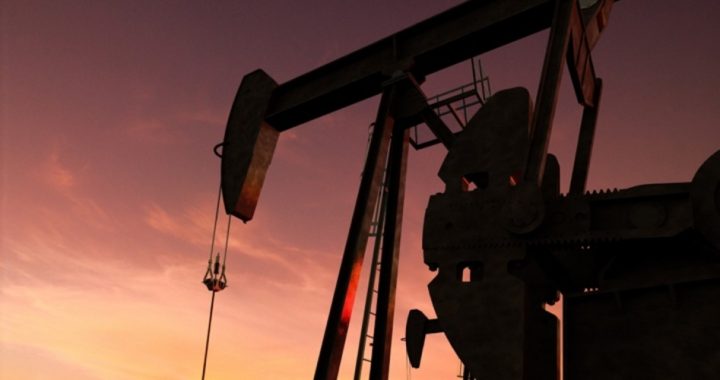
Saudi Arabia’s “crown jewel” — Aramco, officially the Saudi Arabian Oil Company — announced on Sunday that it is only offering 1.5 percent of itself for sale in December, at a price far less than Crown Prince Mohammed bin Salman (MBS) had hoped for. And if things don’t meet even those minimum now greatly reduced expectations, the company could pull the offering before it goes public in December.
When first floated in 2016, MBS suggested he could sell five percent of the state-owned and controlled oil company and receive $100 billion to jump start his Vision 2030. He assumed that his “jewel” is worth $2 trillion.
Analysts looking through the 600-page prospectus that was released last week on the deal aren’t impressed, with many suggesting a much lower valuation, perhaps as low as just $1 trillion. That could turn MBS’s dream into a nightmare. If the offering goes well, he might receive $25 billion. If it doesn’t go well it might generate nothing at all, leaving behind bad press and a warning to investors to stay away from such offerings in the future.
The New American has pointed out some of the risks investors face if they provide the funds needed to pay for MBS’s dream, including the company’s recently declining profits as oil prices have dropped, a credit downgrade by Fitch Ratings following the murder of Washington Post journalist Jamal Khashoggi (which occurred on MBS’ watch), the company’s deliberate manipulation of its numbers to make the offering look better than it actually is, and the September attacks on its production facilities that cut its production suddenly and severely.
Now there’s the risk that the offering won’t take place at all.
The company’s “road show” or “book building” tour across the globe apparently hasn’t gone well according to Wall Street Journal: “International investors have so far signaled that a $1 trillion to $1.5 trillion valuation would be more reasonable [number] for them to consider investing.”
The company is undertaking a massive marketing effort to sell shares to Saudi’s citizens, with billboards touting the offering, talk-show hosts talking up the “opportunity,” and even Islamic officials “approving” the purchase of shares for the common folks. MBS himself is pressuring some of the country’s richest individuals (many of whom he investigated and temporarily incarcerated over charges of corruption) to “invest” in his company, with the clear implication that if they don’t, he could revisit their alleged illegal activities. That’s not an investment; that’s blackmail.
It’s increasingly unlikely that any of the funds raised will ever help MBS reduce his country’s near total reliance on oil for its budget. In April, the Saudis entered the bond market for the first time, raising $12 billion in the process. This was necessary to help fund the country enormous and increasing annual deficit spending. In 2018, revenues fell short of spending to the tune of $36 billion, with a similar shortfall likely this year. Next year, the country’s finance minister expects that the country’s deficit will widen to $50 billion. So, as large as the potential IPO might be (if it happens it would be the second largest in history), the proceeds will quickly be absorbed by the government to cover its excessive welfare state spending. MBS’ Vision 2030 will remain just that: a vision.
As The New American noted, the initial offering would provide the company with a measure of just how hungry investors are to holding a share of Aramco in light of a declining world economy and soft oil prices. The idea is that if the offering goes well, a second, much-larger offering would come, reflecting the initial offering’s price. But money managers were leery that the price of such a small initial offering could be manipulated to make it appear that the company is worth more than it is.
Accordingly Aramco has announced that there won’t be a second offering.
A key giveaway is that, buried deep inside the 600-page prospectus that MBS hopes few will read, is this nugget:
The government may direct the company to undertake projects or provided assistance for initiatives outside [of Aramco’s] core business, which may or may not be consistent with the company’s immediate commercial objectives or profit maximization.
One doesn’t have to read Arabic to conclude that the government (which presently owns 100 percent of Aramco) considers the oil company its own private piggy bank and may just decide that it has better uses for the $25 billion that might come from the IPO than investing it in real estate projects, tourism centers, or manufacturing facilities. It may just decide to use the money to fund part of its ongoing deficits.
That leaves investors holding a piece of paper whose promises of large dividends and a share of the world’s second largest proven reserves of oil ever gaining in value may not pan out. Remember that this is not a typical free market IPO, but an attempt to sell a tiny sliver of a state-owned and -controlled oil company in order to help its owner pay its bills. The value of that piece of paper will be subject not only to governmental decrees and future changes of “direction,” but also to the long-term price of oil, which has clearly trended downward. In June 2014, the West Texas Intermediate (TWI) price of oil was over $105 a barrel. On Friday the market closed at $57.93 a barrel.
Photo: tifonimages/iStock/Getty Images Plus
An Ivy League graduate and former investment advisor, Bob is a regular contributor to The New American primarily on economics and politics. He can be reached at [email protected].
Related articles:
Saudi Arabia’s Aramco IPO Fraught With Danger for Investors
Aramco IPO Plans Pushed Forward Before Oil Prices Drop Further



